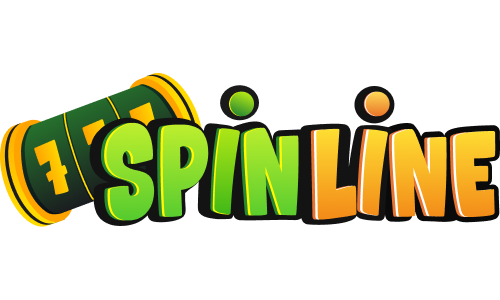Picture this. You're playing an online game. You hit a lucky streak and win a tiny amount of money. It might not be a lot, but it creates a rush of excitement. These small wins can keep you playing longer, locked into the game. This is more than chance; it's a mix of psychology and brain chemistry that makes gambling so gripping.
The thrill of small wins is no accident. Your brain responds with excitement, releasing chemicals that make you want to play again. This reward system is powerful and can even lead to addiction if not kept in check. Understanding this can be a step towards managing your gambling habits.
Online gambling is accessible and easy to get hooked on, especially with these little wins. When you grasp how small victories impact your brain, you can make more informed decisions about gambling. Recognizing the signs of addiction is key, and knowing how to play responsibly can protect your mental well-being.
Key Takeaways
- Small wins trigger excitement and keep you playing.
- The brain's reward system can lead to addiction.
- Understanding these effects can help manage gambling habits.
Understanding Online Gambling
Online gambling has grown significantly, with electronic gaming machines like slot machines and progressive jackpots popular among players. These games use design techniques that appeal to your psychology, making you more likely to keep playing.
Evolution of Electronic Gaming Machines
Electronic gaming machines (EGMs) have evolved from basic slot machines to complex multi-line slot machines. You've probably noticed how these machines make gambling more engaging. With bright graphics and exciting sounds, they draw you in.
Modern slot machines often feature multi-line bets, allowing you to place more bets on each spin. This increases your chances of a win, even if it's small. Additionally, progressive jackpots offer you the thrill of winning huge amounts. Progressive machines connect to a network, meaning each bet contributes to a growing jackpot that can be life-changing.
Despite the enjoyment, remember these machines are games of chance. The odds are always in favor of the house, meaning wins are designed to be less frequent than losses. This aspect makes understanding the mechanics of EGMs important as a player.
Psychology behind Game Design
Game designers use psychology to keep you hooked on gambling. Reinforcement schedules are a key tactic. These schedules dictate how often you receive rewards, like in a slot machine game. By offering small, random wins, they create a rhythm that encourages continuous play.
The unpredictability of these wins taps into your brain's reward system. Dopamine, a neurotransmitter, gets released with each win, making you feel excited and satisfied. This chemical response can make you want to keep playing, chasing that same feeling over and over again.
Many games also have near-miss outcomes, which make you feel like you almost won. This tricks your brain into thinking that a win is just around the corner, convincing you to play again. Understanding how these psychological strategies work can help you make informed decisions when gambling online.
The Brain's Reward System
Your brain is wired to seek pleasure. This is crucial in understanding how small wins in gambling can keep you coming back for more. Key players in this process are dopamine and the prefrontal cortex.
Neuroscience of Dopamine Release
Dopamine is a chemical that signals pleasure in your brain. When you anticipate a win, dopamine is released. This creates a thrill, making you want to pursue that feeling again.
Every time you gamble, your brain releases dopamine at the possibility of a win. It doesn’t even matter if it's a small win. The excitement activates your brain's reward system, reinforcing your gambling behavior.
This cycle can become addictive. Your brain craves the dopamine rush, making you more likely to gamble again. The dopamine release makes winning feel rewarding, even if it’s just small wins.
Role of the Prefrontal Cortex
The prefrontal cortex is a part of your brain involved in decision-making and self-control. It's the area that should help you weigh risks and benefits. In gambling, its role becomes crucial.
If dopamine overwhelms your prefrontal cortex, impulse control can weaken. You may keep gambling despite negative outcomes. The anticipation of a win affects your ability to make rational decisions.
This interaction between dopamine and your prefrontal cortex shows why small wins can lead to more gambling. Your brain prioritizes short-term pleasures over long-term consequences. This makes the gamble feel justified, even if logic suggests otherwise.
The Small Win Phenomenon
In online gambling, you're more likely to stay engaged due to the impact of small wins and the tricky nature of certain losses. These elements exploit your brain's reward system and influence your continued participation.
Magnitude of Wins and Motivation
Small wins can have a significant impact on your motivation. When you experience frequent minor victories in gambling, your brain releases dopamine, a chemical that makes you feel good. This encourages you to keep playing, hoping for larger rewards.
Even though these wins might not be substantial, they are enough to keep you interested. Small wins create a sense of progress and success, leading you to make irrational decisions. The repeated satisfaction from these wins can make gambling addictive and hard to resist.
Losses Disguised as Wins
Losses disguised as wins occur when you end up losing money, but the game makes it feel like you've won. This happens when your winnings are less than your original bet, yet the game plays celebratory sounds or shows animations.
This false sense of success triggers dopamine release, tricking you into feeling rewarded. The impact on your perception is significant. You might not notice how much you're actually losing over time.
By keeping you focused on these so-called wins, casinos and apps ensure you stay engaged. Understanding the effects of these disguised losses can help you become more aware of gambling tactics.
Cognitive Biases in Gambling Behavior
In gambling, cognitive biases shape your decisions and emotions. These biases, like the illusion of control and the near-miss effect, can make gambling feel rewarding even when losses occur.
Illusion of Control and Gambling
When you gamble, you might think you have control over the outcome. This is called the illusion of control. It occurs when you believe your actions, like choosing numbers or pressing buttons, can influence the results.
This bias can lead to increased gambling behavior. You might take unnecessary risks because you feel you have a special strategy or skill. Even though games are based on chance, this false belief can keep you playing longer, hoping for that big win.
The Near-Miss Effect on Redefined Success
A near-miss happens when you almost win. For instance, if you get two out of three winning symbols on a slot machine, it feels like you came close. This experience can trigger the near-miss effect, making you feel like success is just around the corner.
This feeling can redefine what you see as a win. You might feel encouraged to keep gambling, believing you're improving or getting closer to a win. The excitement of almost winning can be as stimulating as a win itself, pushing you to try again.
Gambling Addiction and Mental Health
Understanding gambling addiction provides insight into its impact on mental health and relationships. Recognizing symptoms and effects is crucial in addressing the challenges faced by individuals and society.
Identifying Gambling Disorder
Gambling disorder affects mental health significantly. It is identified by recurring problematic gambling behavior. The DSM-5 classifies it as a mental health disorder. Symptoms include hiding gambling activity, feeling restless when not gambling, and needing to gamble with increasing amounts of money.
Problem gambling can lead to anxiety and depression. Recognizing these signs early helps to prevent further mental health issues. Families and friends can play a key role in identifying these behaviors. Seeking professional help is encouraged if you notice these patterns in yourself or others.
Impacts on Relationships and Society
Pathological gambling affects personal relationships and society. It often leads to conflict with family and friends. Trust issues may arise, and relationships can become strained. This can result in isolation and harm to one's social circle.
Financial difficulties are common as gambling debts accumulate. Social consequences include job loss and increased strain on community resources. Being aware of these impacts helps in understanding the wider effects on society. Addressing these issues is important for both personal and societal well-being.
Prevention and Treatment Strategies
To tackle gambling addiction, practical steps include counseling and behavior changes, along with possible medication. These methods offer hope for those affected to regain control and improve their lives.
Counseling and Behavior Modification
Counseling is key in treating gambling addiction. Cognitive Behavioral Therapy (CBT) helps you spot harmful patterns and change them. This therapy can boost self-control and manage cravings.
Behavioral therapies, like Motivational Interviewing, motivate you to consider changing addictive behaviors. Support groups, such as Gamblers Anonymous, offer community and understanding. Sharing experiences with others who have similar struggles fosters accountability and provides encouragement.
By regularly attending therapy sessions and support groups, you can learn to resist the triggers of gambling and develop healthier habits. These behavioral changes are crucial for long-term recovery and prevent relapses.
Medications and Therapeutic Interventions
In some cases, medications offer additional support. Naltrexone is a medication that addiction researchers have studied for its potential to reduce gambling urges. It's designed to cut cravings and may lessen the thrill associated with gambling activities.
Therapeutic interventions include psychiatric treatment, especially if gambling coexists with other mental health issues. Family therapy can also be useful. It addresses the impact of your gambling on loved ones and strengthens family relations, providing a stable home environment.
Combining medication and therapy can enhance recovery efforts. When you take an integrated approach, you cover both the psychological and physiological aspects of gambling addiction, which can lead to more effective outcomes.
Responsible Gaming and Industry Practices
In online gambling, the industry must adopt practices to ensure safety and fairness. It's vital to understand the roles of regulatory authorities and the importance of creating an ethical gaming environment.
Role of Regulatory Authorities
Regulatory authorities shape the landscape of online gambling. They create laws and guidelines that operators must follow. Their role includes licensing casinos, monitoring gambling behavior, and ensuring compliance with legal standards.
These organizations address gambling problems by promoting responsible practices. They implement rules like age restrictions and advertise safe gambling messages. Their mission is to protect you while keeping the gaming industry accountable.
By enforcing ethical standards, regulators help minimize harm. The American Psychiatric Association also emphasizes responsible gaming to reduce addiction risks. You can trust that well-regulated sites are safer, offering a more secure experience.
Creating a Fair and Ethical Gaming Environment
Online gambling operators strive to provide a fair platform. They support research into gambling behavior to understand its effects and improve user safety. Transparent odds and anti-cheating tools are crucial to maintaining trust.
Responsible gaming involves various measures. Operators offer self-exclusion programs, set betting limits, and provide resources for managing gambling behavior. These efforts help prevent gambling problems and promote safe habits.
The gaming industry collaborates with researchers to develop better practices. They focus on reducing potential risks by using the latest studies. You benefit from environments designed with fairness and player protection in mind.
Frequently Asked Questions
Small wins in online gambling play a significant role in the psychological aspects of addiction. From cognitive biases to social influences and reward systems, many factors keep you engaged.
What are the cognitive biases that contribute to gambling addiction?
Cognitive biases can make you overestimate your chances of winning. The "gambler's fallacy" leads you to believe that past events affect future outcomes, even when they don't.
How does the reward system in the brain reinforce gambling behavior?
When you gamble, your brain releases dopamine, a chemical associated with pleasure. Even small wins can trigger dopamine release, reinforcing your urge to keep playing.
In what ways do social factors influence an individual's predisposition to gamble?
Family and friends who gamble can shape your attitudes toward gambling. Advertisements and social media also portray gambling as glamorous, which can influence your behavior.
What role does illusion of control play in the psychology of gambling?
The illusion of control occurs when you think you can influence random outcomes. This belief can make games seem skill-based when they are not, keeping you engaged.
How do online gambling platforms use psychological triggers to increase user engagement?
Online platforms use techniques like bonuses, rewards, and flashing lights. These elements are designed to draw you in and make you play longer.
What methods are effective in breaking the cycle of addiction in gamblers?
Therapies like cognitive-behavioral therapy (CBT) help change your thought patterns. Support groups and self-exclusion programs can also offer assistance and accountability.




